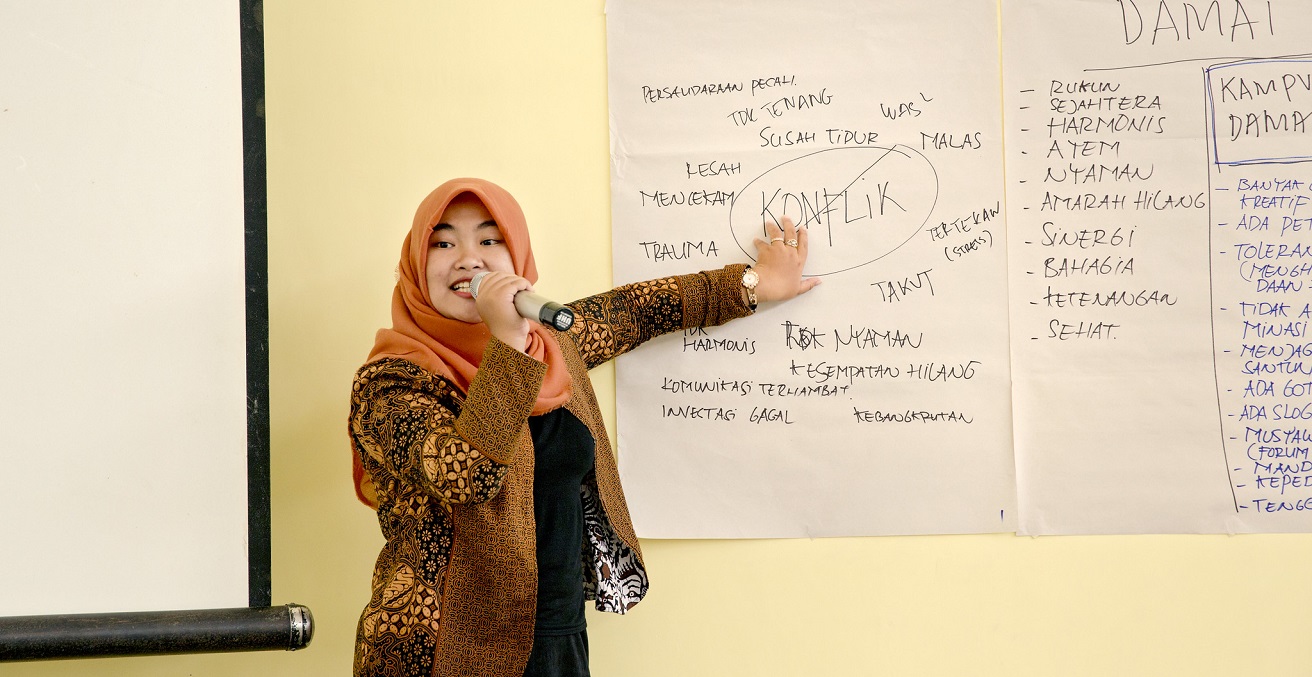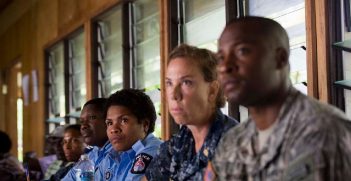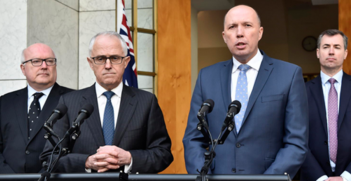Peacebuilding – It’s Time to End Australia’s Neglect

A necessity for coping with these conflict-ridden times is to increase capacity for peacebuilding. For Australia, those best placed to facilitate overseas peacebuilding efforts are its diplomats.
“The world has experienced disasters and conflict in the past. But the intensity and confluence of today’s challenges in an interconnected world are without precedent,” said Foreign Minister Senator Penny Wong in her eloquent, accurate national statement to the UN General Assembly. Vladimir Putin’s threats about nuclear weapons, the lags in addressing climate change, and the global pandemic are three existential challenges which justify her comment.
Australia used to have a strong record of peacebuilding in industrial relations. Conciliation and arbitration for handling industrial conflict have been operational in Australia since a few years after federation in 1900. Yet such techniques as consultation, mediation, bargaining, and the search for fair and workable compromises have not been applied with such committed intent to international relations.
The principal national peacebuilding facilitators should be Australian diplomats. Yet during the last quarter century, the share of Commonwealth expenditure allocated to diplomacy has been cut by half, leaving Australia with weaker overseas representation than all but one other G20 country. This is a demonstration of confused priorities. Military expenditure continued to prosper under the Coalition, but no attention was given to advancing diplomacy which sought to identify causes of conflicts which offer the opportunity for preventative approaches to de-escalating conflict and promoting dialogue.
The Albanese government has acknowledged this gaping hole and promised to end this neglect. The Labor Party’s National Platform says that “Labor will reverse the Coalition’s policies of eroding Australia’s diplomatic capacity … Labor will steadily improve the financing, staffing and expertise of Australia’s diplomats, enabling stronger approaches to conflict prevention, peacebuilding and multilateral participation.” The October budget is the place for this to start.
Other wealthy countries in Western Europe, North America, and Asia have evolved nongovernment organisations (NGOs) as well as public diplomacy to enhance peacebuilding capacity. Civil society organisations have greater freedom than governments to study conflict and to propose and explore means of transforming tension. They can undertake research and contribute to analysing causes of conflict, facilitate dialogue, assisting with mediation and other peacebuilding mechanisms, and train peacebuilders. Examples, from among many, include the Finish Crisis Management Group, Ottawa Dialogue linked to the University of Ottawa, and the US Institute for Peace established and partly funded by Congress.
Australia is the only wealthy country that doesn’t have an NGO dedicated to peaceful international conflict resolution which focuses on all of research, engagement, and teaching. There are several Australian NGOs doing excellent work advocating carefulness in addressing conflict and proposing disarmament. The International Campaign to Abolish Nuclear Weapons (ICAN) is an outstanding example. ICAN was awarded the Nobel Peace Prize in 2017. University of Queensland Peace and Conflict Studies has active education and research programs, but they are not generally active peacebuilders. There are also a couple of international peacebuilding NGOs with branches in Australia, such as the London-based Conciliation Resources.
However, Australia does not have an adequately funded, Australian-based organisation whose central purposes include each of research, engagement, and education about peacebuilding in the Indo-Pacific region. In the UK, the US, Nordic countries, Canada, and Switzerland, for example, peacebuilding NGOs work cooperatively with official diplomats and receive substantial core funding and programmatic financial support. Australia should learn from centres like those already mentioned and the Peace Research Institute Oslo (PRIO)
The value of such a centre in Australia was emphasised by the Senate Report on the Inquiry into Funding for Public Research into Foreign Policy Issues. The Committee states “that there is a pressing need for foreign policy research and engagement, both publicly and privately funded in Australia.” However, the Committee noted that since Australia does not have a culture of philanthropic support for research about international relations, the Australian government must be the primary source of funding for foreign policy research.
The Committee acknowledged that “there is broad consensus across the political spectrum regarding the value imparted by the Australian Government’s investment in independent public policy institutes.” For example, the Commonwealth partnered with the University of Melbourne to establish the Australia India Institute by providing $17.6 million between 2008 and 2022. The Committee recommended establishment of a task force to administer pools of funds for, among other areas, priority themes such as peacebuilding and human security. Such funds would allow employment of professional staff with excellent capacities as researchers, scholarly authors, experienced peacemakers, and lecturers. Excellent peacebuilders and peace scholars are unlikely to apply for short-term contracts. It would be organisationally naïve to assume that competent academics and peacebuilders would be satisfied with short, fill-in jobs.
Operational support is essential for the development of high-quality organisational peacebuilding expertise. This is essential if urgent tasks are to be undertaken immediately when requested. It is essential if all three of the purposes are to be undertaken: research on conflict and the effectiveness of peacebuilding; engagement with peacebuilding processes; and education and training in peacebuilding.
Achievement of such mature balance would contribute to reducing the extent, intensity, and danger of violent conflict. Penny Wong emphasised that “It is up to all of us to create the kind of world to which we aspire – stable, peaceful, prosperous, and respectful of sovereignty.”
John Langmore is a Professorial Fellow in the School of Social and Political Science and Chair of the Board of the Initiative for Peacebuilding at the University of Melbourne. He was an MP from 1984-1996 and a Director within the UN for seven years.
This article is published under a Creative Commons License and may be republished with attribution.





